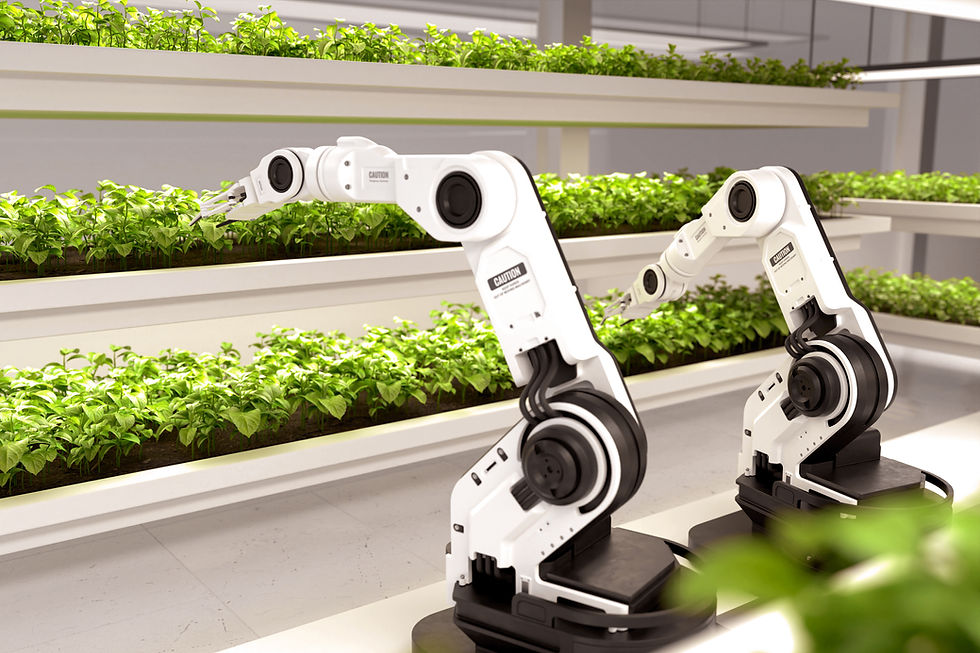Reducing Food Waste in Singapore: The Innovative Approach of RePlate
- Atharva Gupta
- Mar 8, 2025
- 3 min read

Did you know that Singapore generates over 800,000 tons of food waste annually, yet only 19% is recycled? With its vibrant hawker culture and bustling food scene, Singapore faces a growing challenge: reducing food waste while ensuring surplus food reaches those in need. Enter RePlate, a groundbreaking initiative dedicated to tackling food waste through sustainable solutions, community engagement, and policy advocacy.
In this article, we’ll explore the scale of food waste in Singapore, how RePlate is aiming to make a difference, and actionable steps you can take to join the fight against food waste. Whether you’re a diner, hawker vendor, or business owner, this guide will show you how to contribute to a greener, more sustainable Singapore.
The Scale of Food Waste
Singapore’s food waste problem is staggering. According to the National Environment Agency (NEA), the country generated 817,000 tons of food waste in 2022, equivalent to filling 1,500 Olympic-sized swimming pools. Shockingly, only 19% of this waste is recycled, with the rest incinerated and sent to landfills.
Hawker Culture and Food Waste
Hawker centers, a cornerstone of Singapore’s culinary identity, contribute significantly to food waste. Vendors often prepare large quantities of food to meet demand, leading to unsold or excess food being discarded. Additionally, consumers may leave behind unfinished meals, further exacerbating the issue.
Environmental and Social Impacts
Food waste isn’t just a logistical problem—it’s an environmental and social crisis. When food decomposes in landfills, it releases methane, a potent greenhouse gas that accelerates climate change. Meanwhile, 1 in 10 Singaporeans faces food insecurity, highlighting the stark contrast between waste and need.
What does RePlate do?
RePlate is addressing food waste through a multi-pronged approach that combines awareness, action, and advocacy. Here’s how we’re making a difference:
Awareness Campaigns: Educating Vendors & Consumers
RePlate works with hawker vendors, schools, and businesses to raise awareness about food waste. Through workshops, social media campaigns, and partnerships, they educate stakeholders on the importance of reducing waste and adopting sustainable practices.
Community Engagement: Building a Culture of Sustainability
From school programs to corporate partnerships, RePlate engages communities at every level. Their initiatives include:
Food waste challenges to encourage households to reduce waste.
Partnerships with NGOs to expand food redistribution efforts.
Volunteer opportunities for individuals to get involved.
How Readers Can Take Action
For Diners: Tips for Reducing Food Waste
Order mindfully: Only order what you can finish.
Take leftovers home: Bring a container for unfinished meals.
Support sustainable vendors: Choose hawkers who use eco-friendly practices.
For Hawker Vendors: Strategies to Cut Down Waste
Track inventory: Use data to predict demand and reduce overproduction.
Donate surplus food: Partner with RePlate to redistribute unsold meals.
Adopt composting: Turn food scraps into compost for urban gardens.
For Businesses & NGOs: Partnering with RePlate
Join food rescue programs: Donate surplus food to those in need.
Host workshops: Educate employees or members about food waste.
Sponsor initiatives: Support RePlate’s campaigns and infrastructure projects.
Food waste is a pressing issue in Singapore, but initiatives like RePlate are proving that change is possible. Through awareness campaigns, food redistribution, recycling, and community engagement, RePlate is leading the charge toward a more sustainable future.
The fight against food waste starts with you. Whether you’re a diner, vendor, or business owner, there are countless ways to make a difference. Join RePlate today and be part of the solution. Together, we can reduce food waste, support underprivileged communities, and create a greener Singapore.



